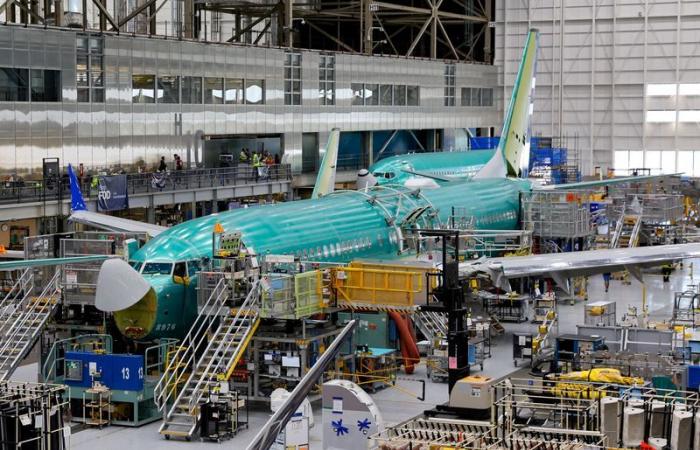US aircraft maker Boeing is on course to become the biggest loser of 2024 in the Dow Jones index, tumbling 32% as it bounces from one crisis to the next.
Its rival Airbus rose more than 11% over the year and the benchmark S&P 500 index gained more than 23% in 2024.
Boeing shares opened the year at $257.50. However, the explosion of a cabin panel mid-flight on January 5 aboard a recently delivered 737 MAX operated by Alaska Airlines triggered investigations and a temporary grounding of the popular single-aisle aircraft.
At the end of the month, the United States Federal Aviation Administration, citing safety and quality concerns, limited production of 737 aircraft to 38 planes per month and the company’s stock price fell. hovered around $211.
The FAA has not lifted this cap. Regardless, Boeing has struggled to produce near the maximum allowed 737 planes per month due to supply chain issues, quality issues and a seven-week strike that temporarily halted most of its commercial aircraft production, including the 737 program.
Throughout the year, Boeing continued to record massive losses across its commercial, military and space programs. In July, the company announced a $4.7 billion deal to buy loss-making supplier Spirit AeroSystems, which makes 737 fuselages. Spirit has also experienced production quality problems.
In August, aerospace veteran Kelly Ortberg joined Boeing as CEO, replacing Dave Calhoun.
Kelly Ortberg’s honeymoon ended in early September, when some 33,000 production workers went on strike over a contract dispute that stretched into November, when the The company’s stock hit its lowest level at $137.07. During the strike, Mr. Ortberg announced plans to reduce Boeing’s workforce by 10% and indicated that the company expected to continue burning cash into 2025.
The promise to reduce labor costs and the restart of 737 production in early December allowed Boeing stock to partially recover to around $177 on Tuesday.






